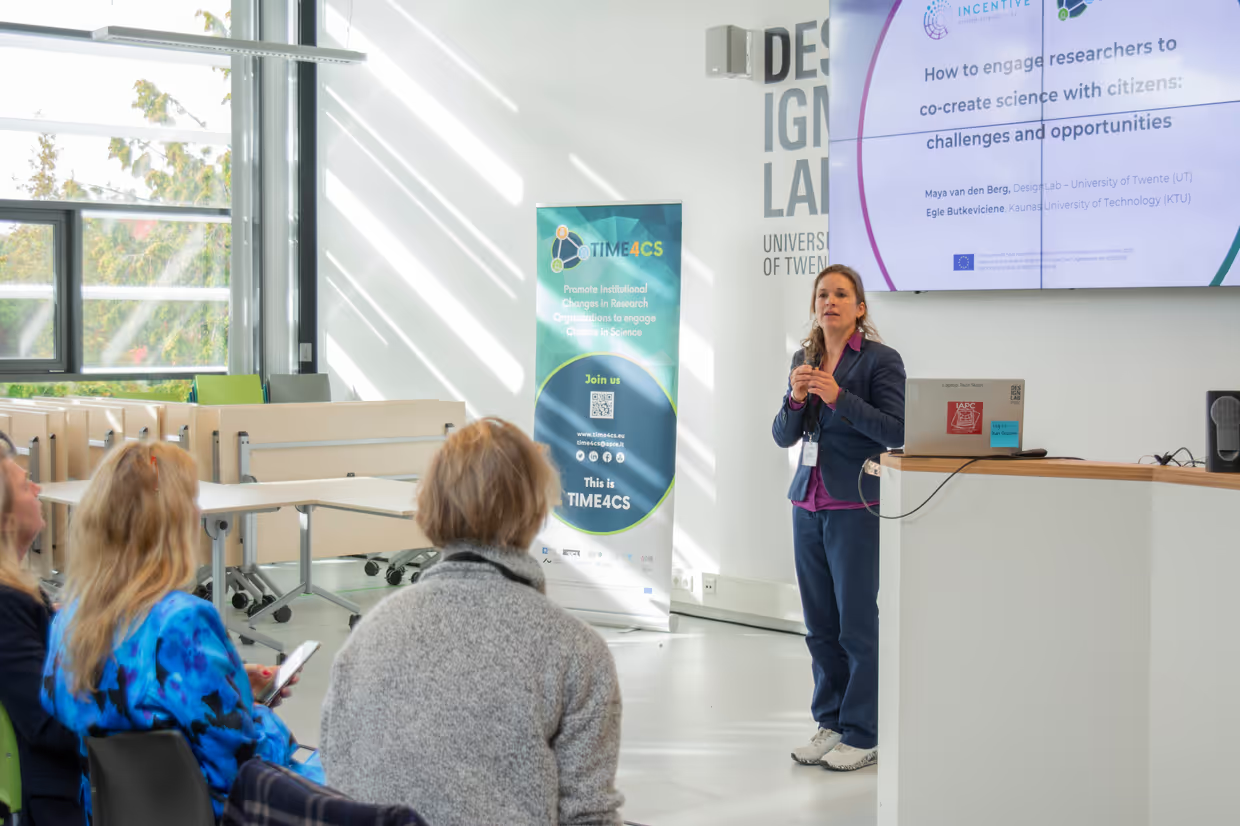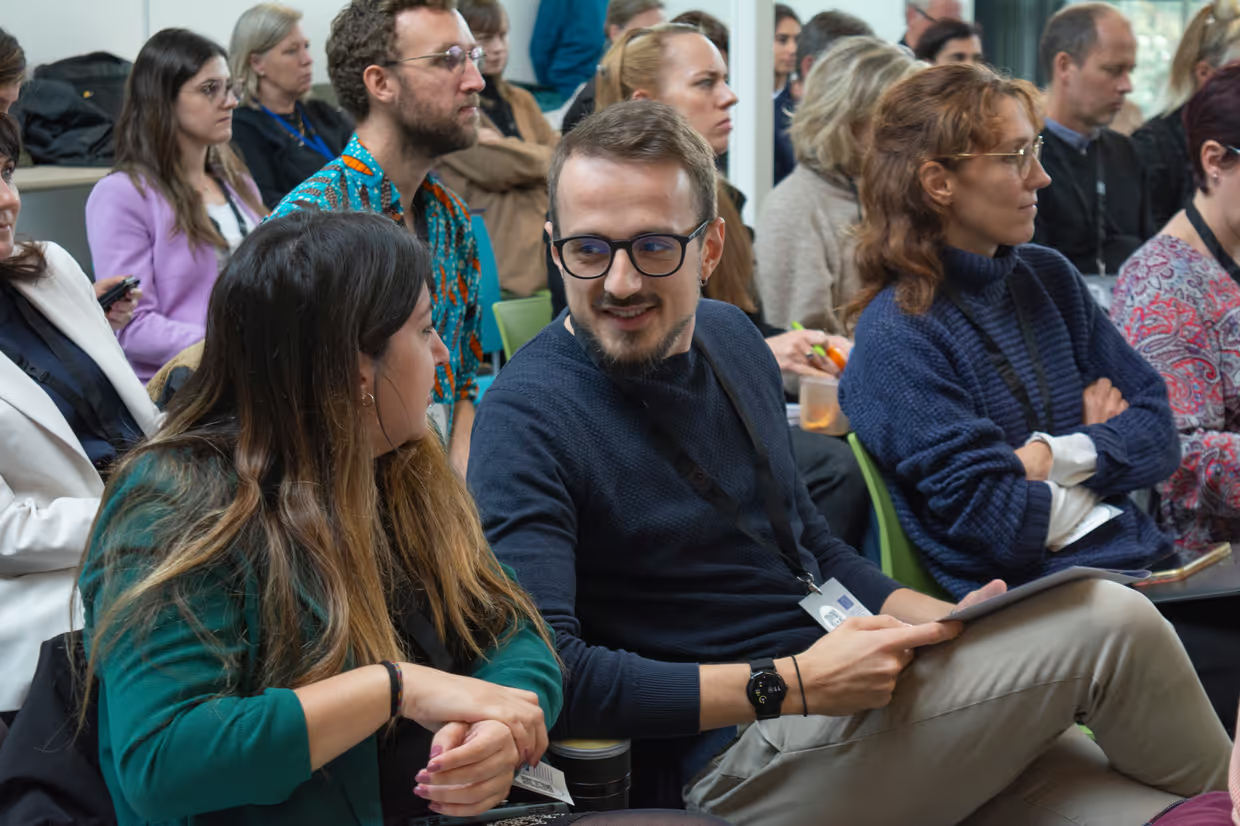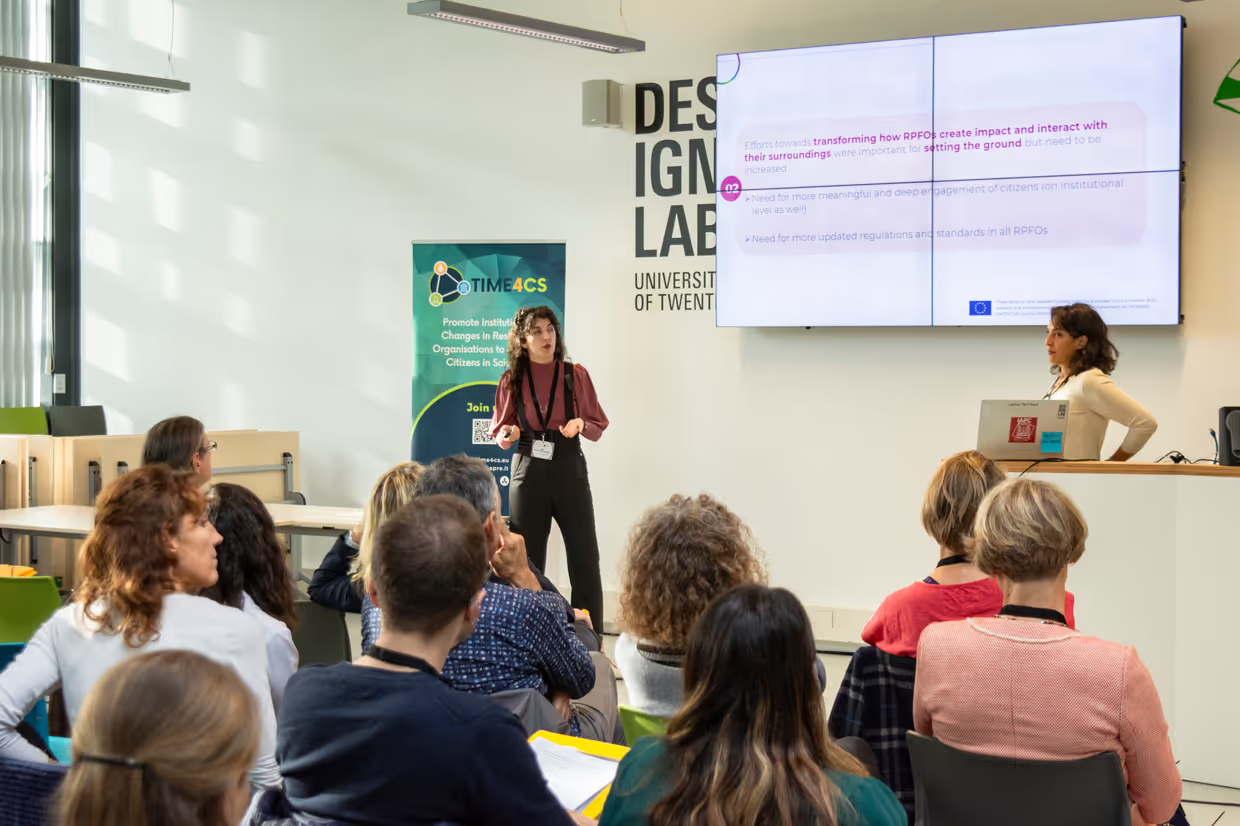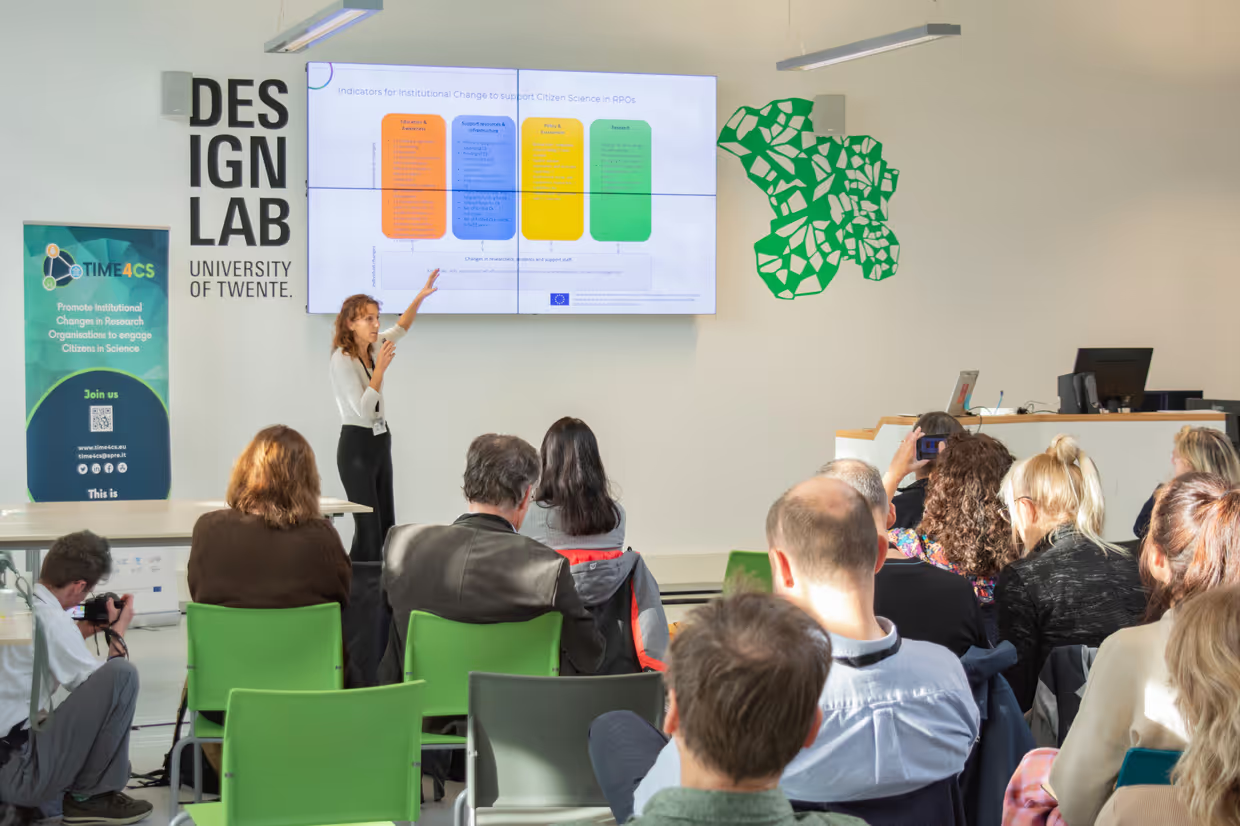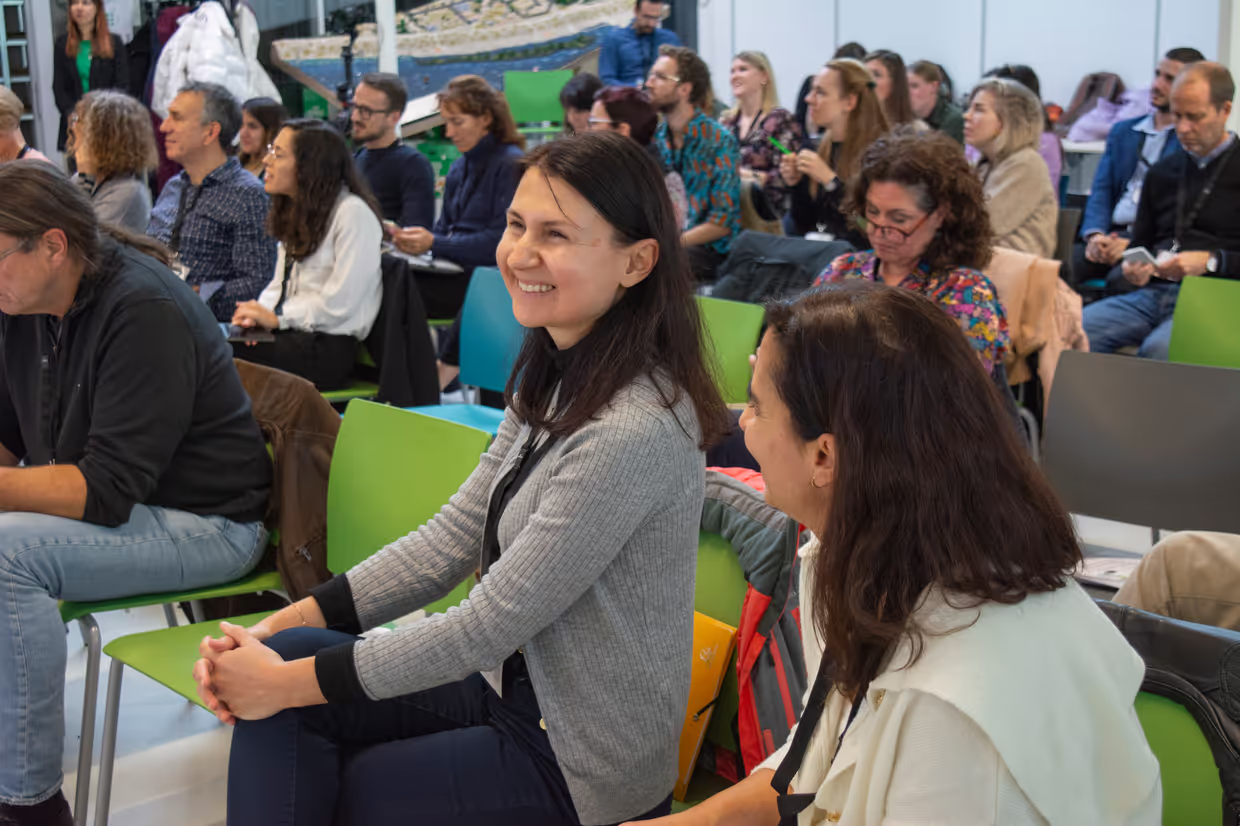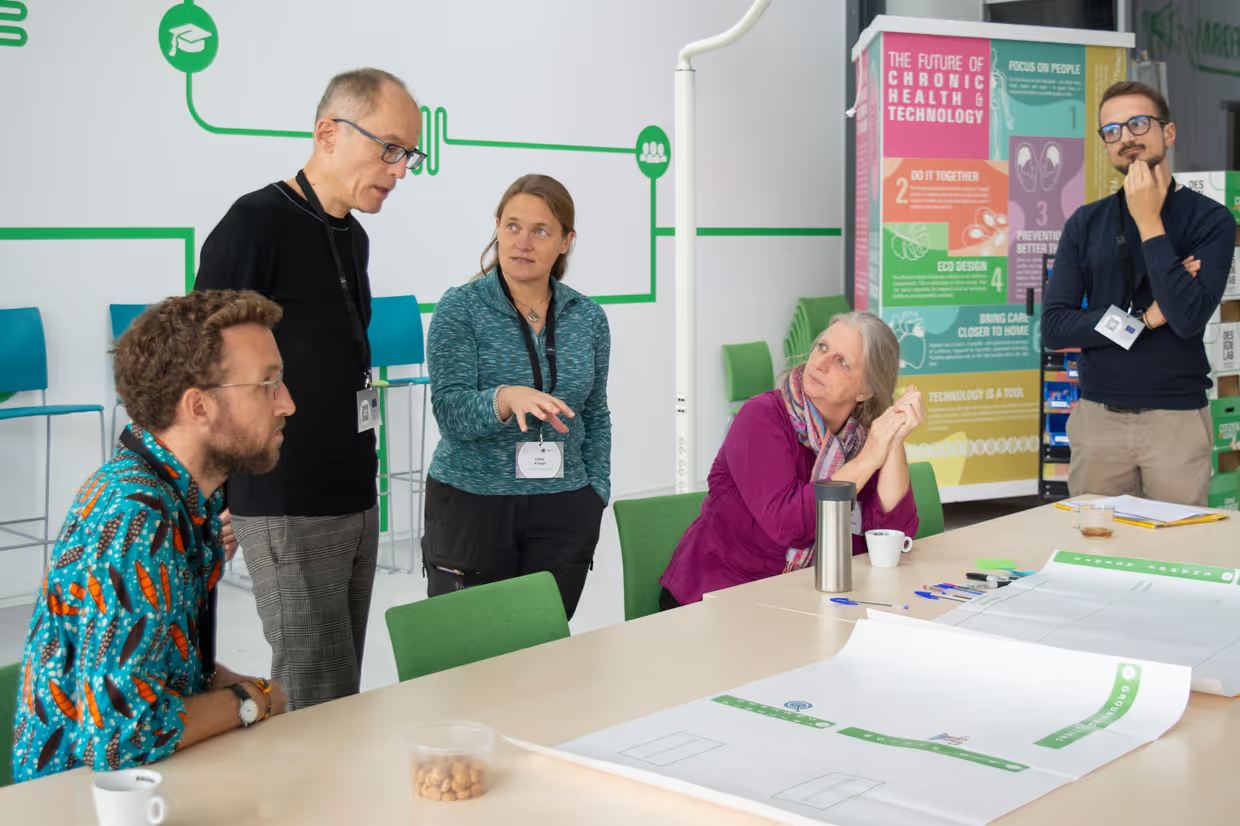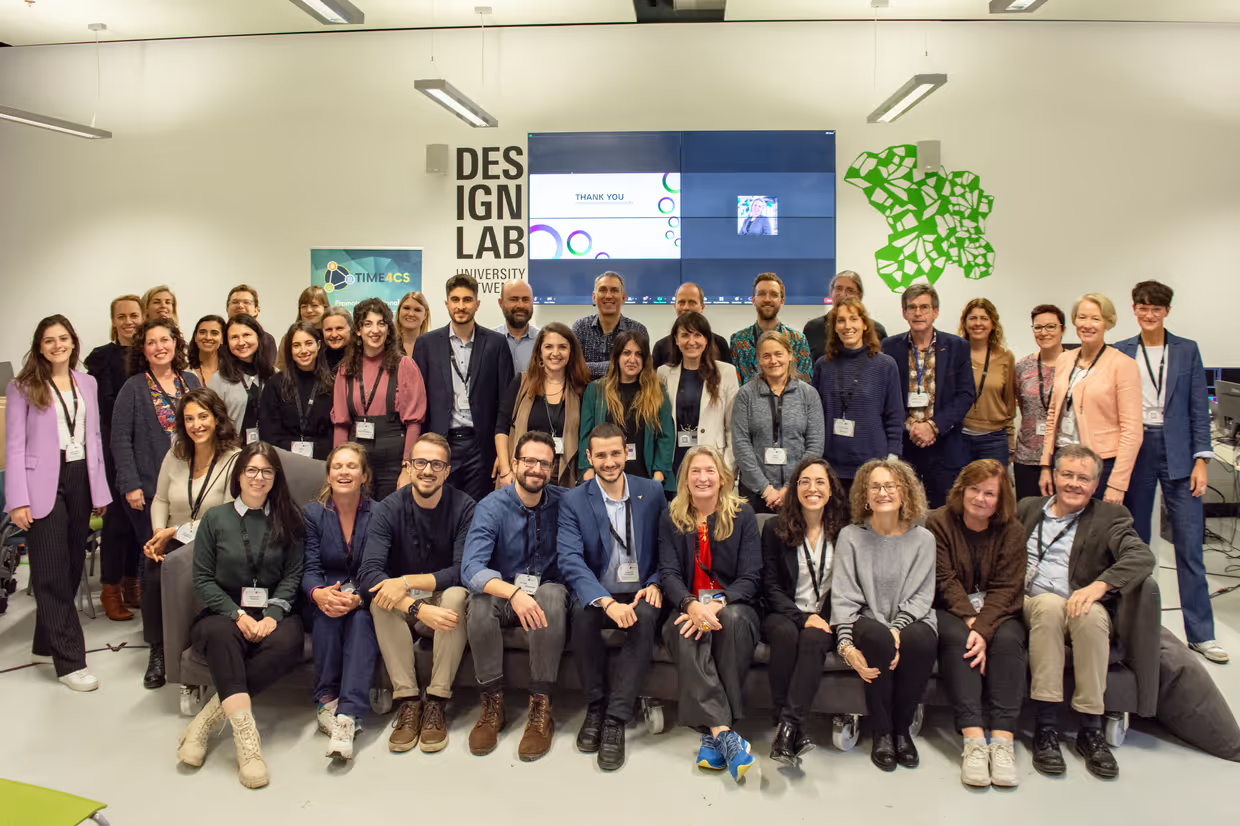During a full day at DesignLab; around 70 people from all over Europe and the Americas - Canada and Brazil - dove into the challenge of grounding Citizen Science in Research Institutions across Europe. We had a packed day with keynote speeches, parallel sessions, and networking opportunities. The day was kicked off by a keynote by Dr Uta Wehn who raised the question “Do research institutions need CS?”, arguing that in fact, Citizen Science is the only way to achieve all the SDGs. While Open Science opens the door of academia to the world, Citizen Science invites the world in to experience science. A major challenge then - exactly the focus on the reads of the day - is how to embed CS then including the question how Research Institutions can create and navigate their Enabling Environment.
The two sister projects Time4CS and INCENTIVE shared their lessons learned after three years dedicated to the challenges. They started with the same dream - to enable research organisations to build bridges between science and society a sketch - aiming at citizens in particular - to ground Responsible Research and Innovation in society. Whereas INCENTIVE established four citizen science hubs throughout Europe, Time4CS aimed more general at the Institutional Changes to promote Public Engagement (citizens and citizens associations) and Citizen Science in science and technology. The projects emphasised the Relevance of both top-down and bottom-up approaches, to co-create by engaging the stakeholders in our ecosystem and to cover the various aspects of institutional change.
The plenary part continued with a 5-step methodology of a common journey towards institutionalising Citizen Science in RPFOs around Europe. From Research and mapping, to Engagement and co-creation, Promoting and supporting CS to Monitoring and evaluation and Sustainability and replication, the participants were given the major insights from the two projects allowing them fresh insights on how to best institutionalise Citizen Science around Europe. In two interactive sessions, participants were working together on tailoring institutional roadmaps and monitoring and evaluation indicators for institutional transformations. After reflections by the Advisory board members on their major insights from the day, the successful conference was concluded with drinks, food… and more networking.

